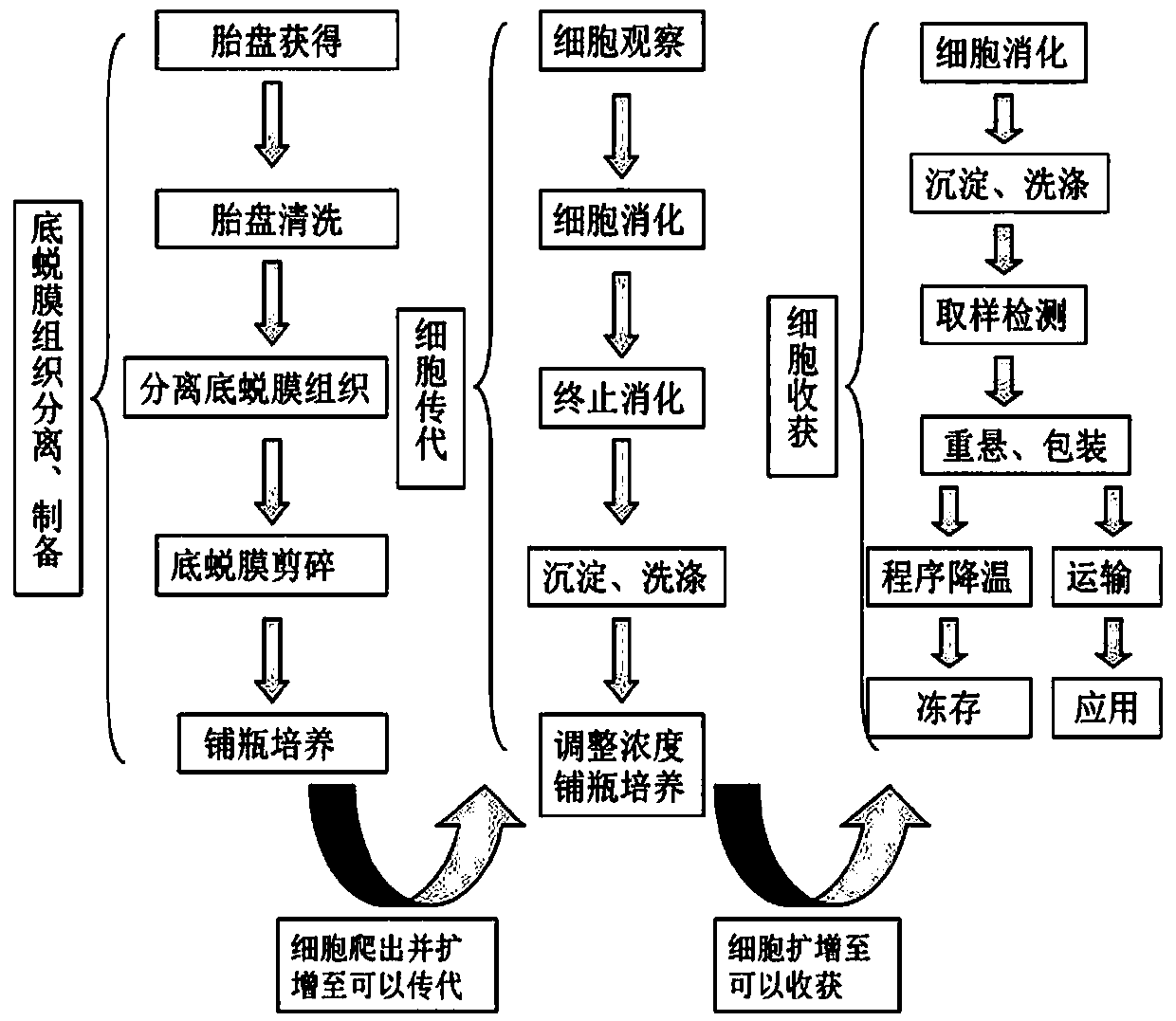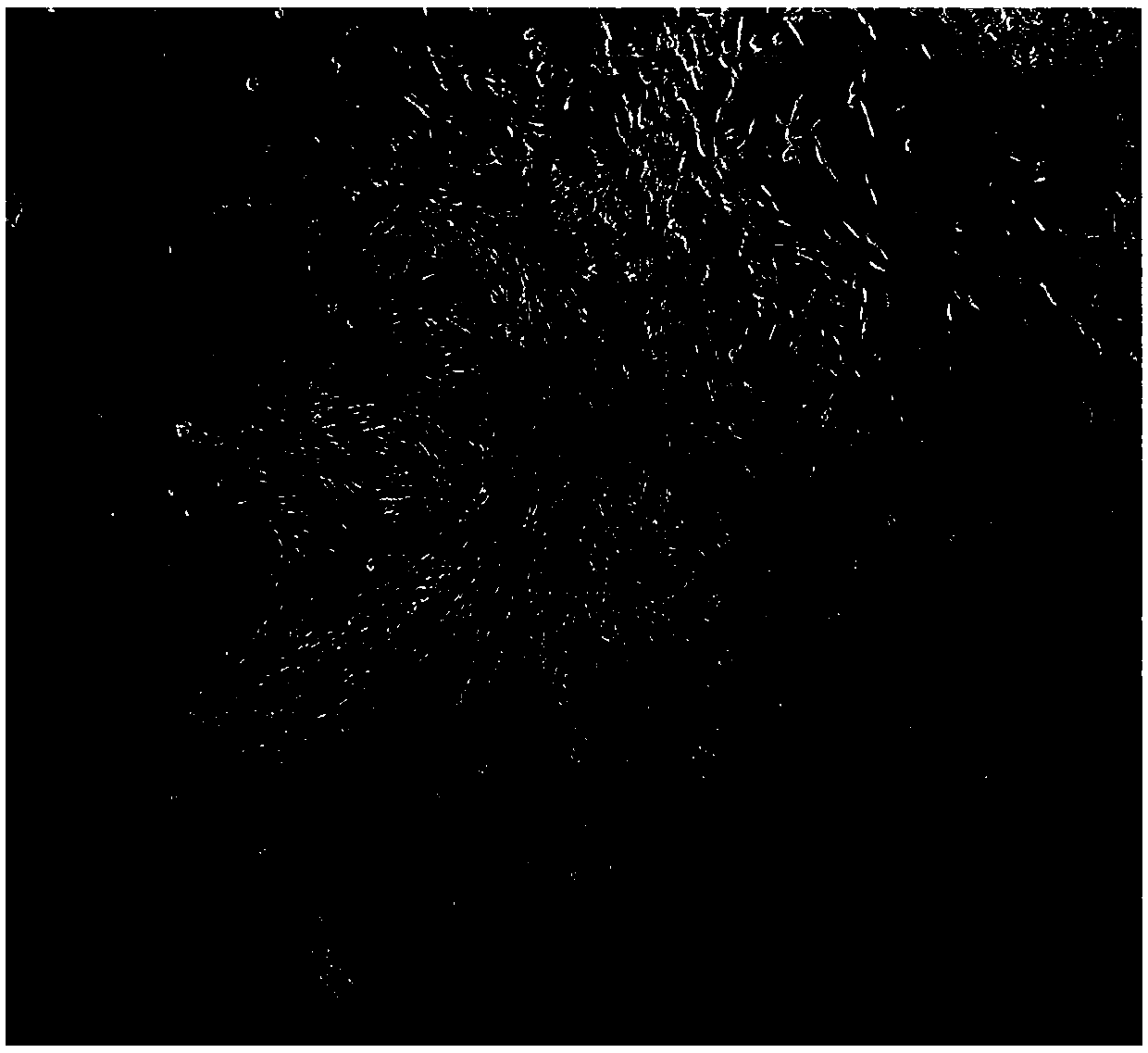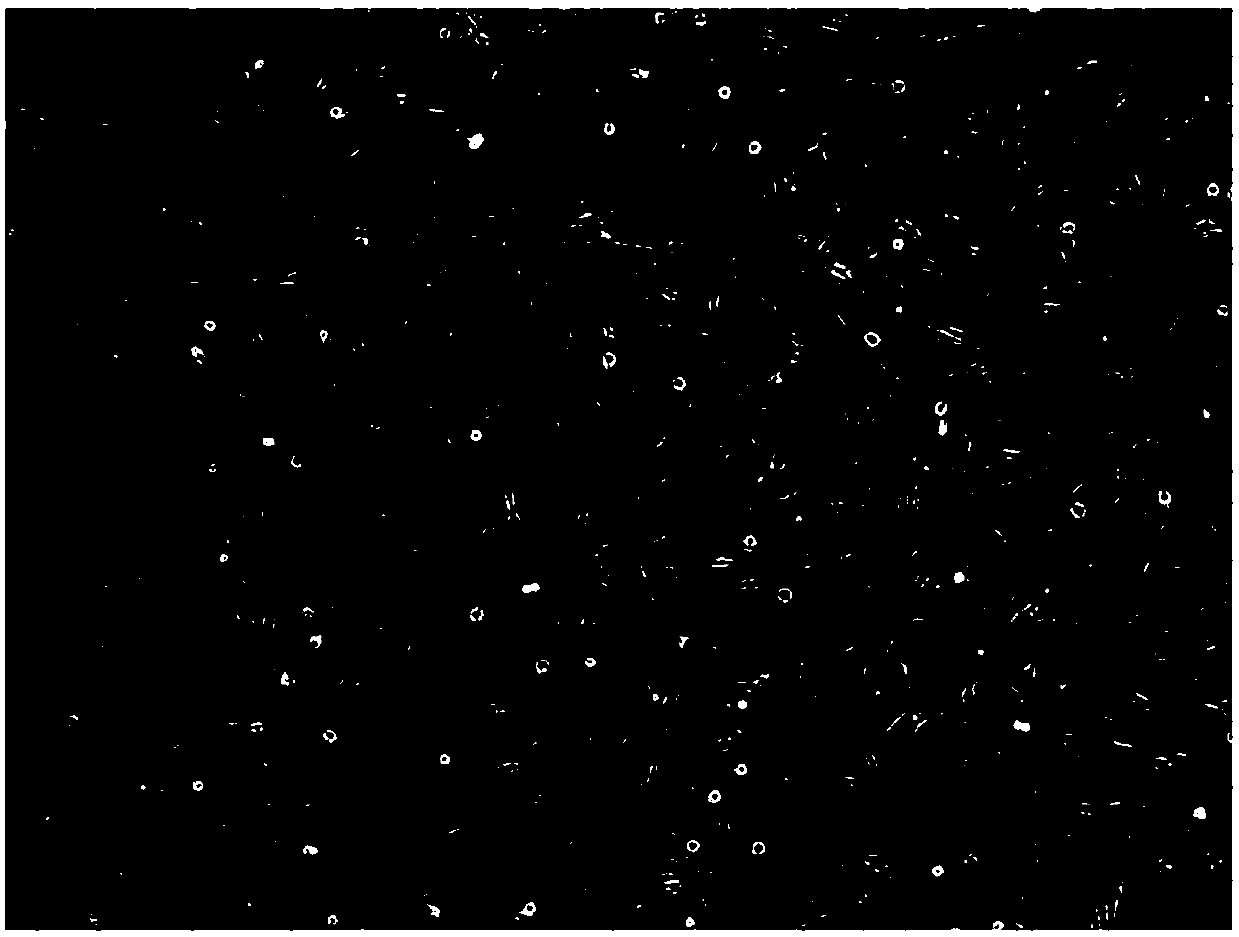Method for separating maternal mesenchymal stem cells from human placenta decidua basalis tissues
A technology for placental decidua and stromal cells, which is applied in the field of cell biology, can solve the problems of high production cost, insufficient safety, and non-single cell components, so as to reduce material cost and time cost, shorten culture period, and improve separation. The effect of efficiency
- Summary
- Abstract
- Description
- Claims
- Application Information
AI Technical Summary
Problems solved by technology
Method used
Image
Examples
Embodiment 1
[0042] A method for isolating maternal-derived mesenchymal stem cells from human placental decidual base tissue, comprising the following specific steps:
[0043] 1. Preparation of placental decidua mesenchymal stem cells:
[0044] 1) Sample screening and collection: select customers who are qualified in all infectious disease tests, and collect 5ml of placental tissue and maternal blood samples after caesarean section; the placenta is rinsed with normal saline, placed in a sterile collection bag, and poured into 500ml of storage and transportation solution. Seal, then put the sterile collection bag into a biosafety sample bag, place it in a storage and transportation box, and transport it to the laboratory at 4-10°C; the formula of the placenta storage and transportation solution is: 500ml PBS+ 320U / ml sulfuric acid Gentamicin + 25 μg / ml amphotericin B.
[0045] 2) Preliminary sample inspection: After arriving at the laboratory, receive the placenta sample and maternal blood...
PUM
 Login to view more
Login to view more Abstract
Description
Claims
Application Information
 Login to view more
Login to view more - R&D Engineer
- R&D Manager
- IP Professional
- Industry Leading Data Capabilities
- Powerful AI technology
- Patent DNA Extraction
Browse by: Latest US Patents, China's latest patents, Technical Efficacy Thesaurus, Application Domain, Technology Topic.
© 2024 PatSnap. All rights reserved.Legal|Privacy policy|Modern Slavery Act Transparency Statement|Sitemap



